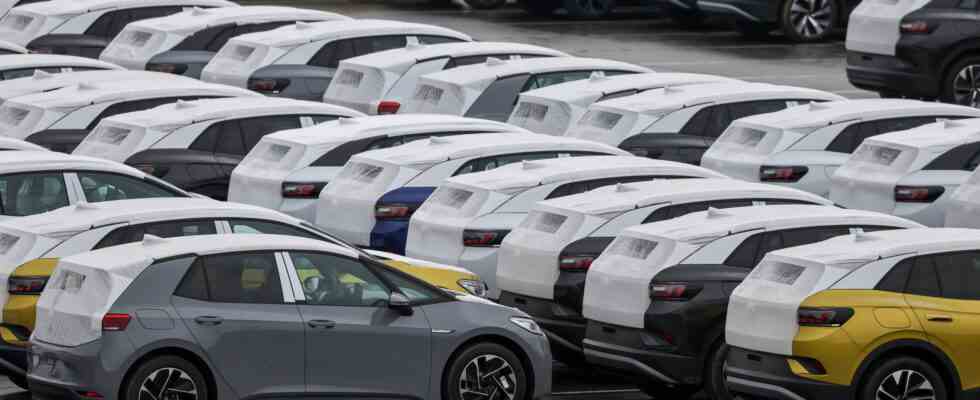As of: 10/27/2022 10:57 p.m
The European Union has agreed on a law that will ban the sale of new petrol and diesel vehicles from 2035. Only zero-emission new vehicles will then be permitted. Some are still hoping for an alternative: e-fuels.
In the future, only new cars that do not emit greenhouse gases during operation are to be sold in the EU – cars with petrol and diesel engines can then no longer be registered. The regulation is scheduled to come into force in 2035. Negotiators from the EU states and the European Parliament agreed on this on Thursday evening, as announced by the Czech Council Presidency. This is intended to accelerate the switch to electric vehicles and combat climate change.
With the ban on internal combustion engines, the EU is focusing heavily on electromobility. In June, the environment ministers of the 27 EU countries had already agreed to end cars with petrol and diesel engines. A final agreement has now been reached within the EU. However, it should be possible to review the decision again in 2026.
The agreement represents a “historic decision by the EU for the climate,” said French MEP Pascal Canfin, who heads the EU Parliament’s environment committee. This “finally confirms” the goal of “one hundred percent emission-free vehicles” by 2035.
E-fuels as an alternative to phasing out combustion engines?
The compromise also includes a request to the EU Commission to check whether the use of so-called e-fuels for cars could be an option in the future. The FDP, in particular, had pushed for this in the federal government. With regard to the EU compromise, FDP leader Christian Lindner spoke of a wise decision that would ensure openness to technology. His party colleague Jan-Christoph Oetjen interprets the test request to the commission as a clear order to pave the way for the operation of the internal combustion engine with alternative fuels.
The climate policy spokesman for the SPD in the European Parliament, Tiemo Wölken, praised the compromise. It is good for the climate but also creates planning security for the auto industry. Green MEP Michael Bloss said it was now clear that the future lay in electromobility. It is about a “turning point” that will secure tomorrow’s prosperity. “Anyone who still relies on the combustion engine harms the industry, the climate and violates European law.” He is critical of the FDP’s desire to allow relatively expensive e-fuels. “The FDP may sell that as a victory, but not everyone can afford this Porsche mentality.”
There had been a lengthy dispute in the federal government over the question of whether the sale of new combustion engines should be banned from 2035. The Liberals and the Greens, in particular, held different positions. The Federal Environment Ministry, for example, had spoken out in favor of a clear end to combustion engines.
Conservatives criticize outright ban
The negotiator for the Christian Democratic EPP group is critical of the outcome of the negotiations. It follows the principle: “Everything on one card,” said the CDU politician Jens Gieseke. “A complete ban on a technology goes too far. From our point of view, there should have been a voluntary regulation for climate-neutral biofuels and synthetic fuels.” The test request submitted by the FDP will not change anything about a combustion ban. This is not legally binding and can be ignored by the Commission. “The Liberals have sealed the ban on combustion engines,” said Gieseke.
The conservative still has one last hope: According to the compromise, an analysis should be introduced that examines the actual emissions of vehicles over a life cycle. The EU Commission must draw up a proposal for this. “Whether the ban on combustion engines will actually apply from 2035 depends heavily on the review in 2026.”

